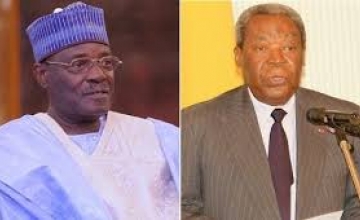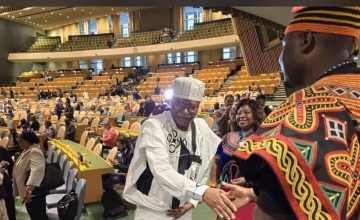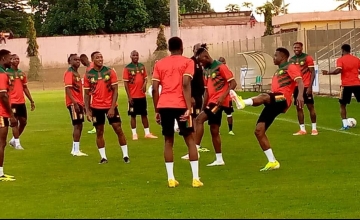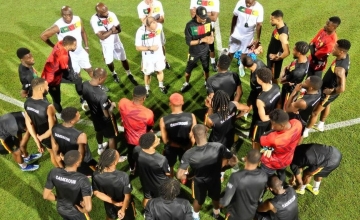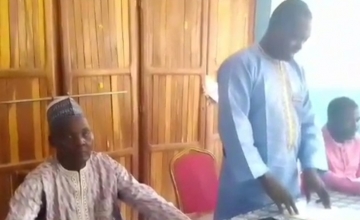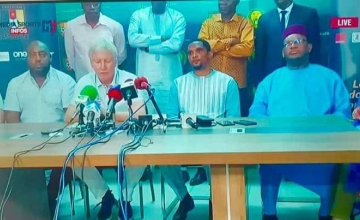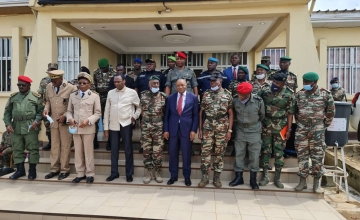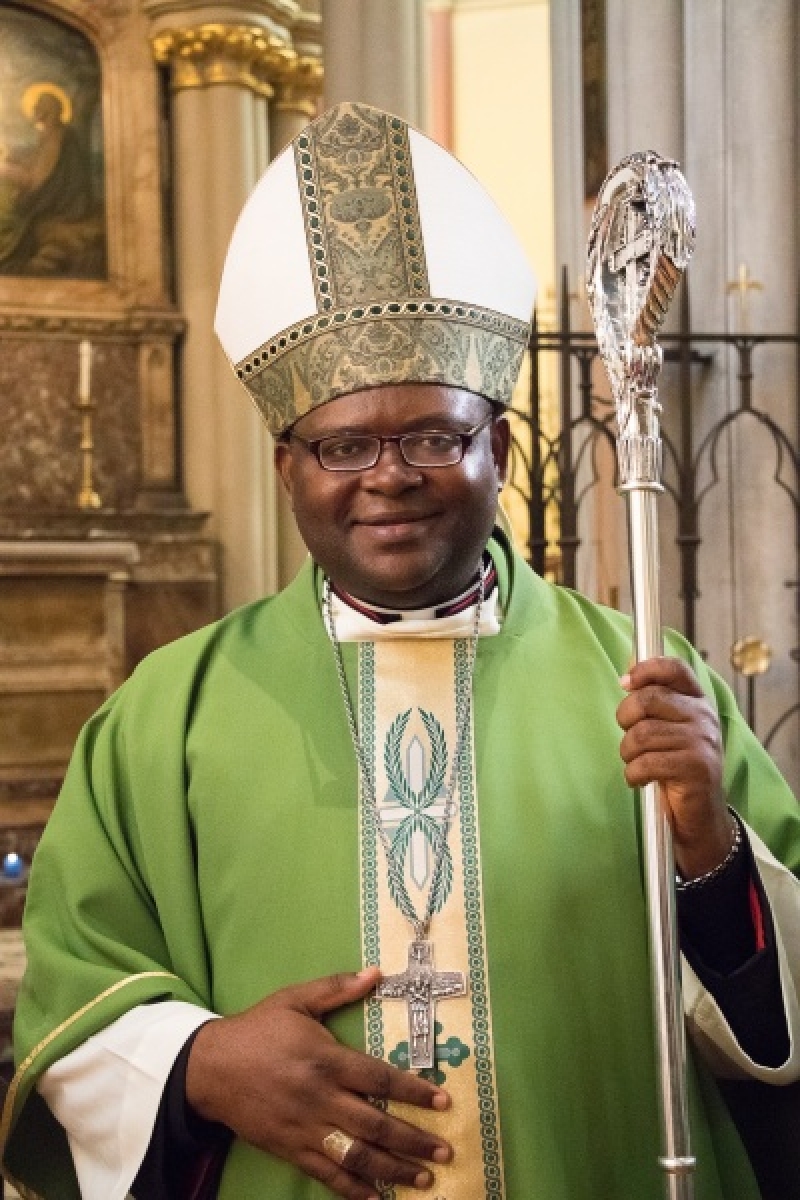
According to the decision from the Holy See, Bishop Michael Miabesue Bibi will serve as Apostolic Administrator (interim Bishop) of the Buea Diocese pending the appointment of a new Bishop.
According to the Code of Canon Law - Book II, Administrators “sede vacante” or “sede plena” only serve in their role until a newly chosen diocesan bishop takes possession of the diocese.
They are restricted by canon law in what they can do to the diocese they temporarily administer. For example, such an administrator may not sell real estate owned by the diocese.
In accordance with Canon Law 419 part 1, Rt. Rev. Immanuel Balanjo Bushu addressed a letter of resignation to the Pope when he clocked 75. By appointing an Apostolic Administrator to manage the affairs of the diocese, the Vatican accepts the resignation of Bishop Bushu and places him on retirement.
Bibi however remains the auxiliary Bishop of Bamenda.
Born on July 28, 1971 in Bamessing, Ndop, North West Region of Cameroon, +Bibi was ordained Priest on April 26, 2000. He was appointed auxiliary Bishop of the Bamenda Archdiocese on January 24, 2017 cumulatively with the functions of Titular Bishop of the Titular See of Amudarsa. He was ordained into his functions on March 25, 2017 at St. Joseph, Cathedral, Bamenda, Archdiocese of Bamenda.
Bibi was twice kept in the custody of the Non State Armed Group (Amba Boys) fighting to make Cameroon’s North West and South West Regions an independent state they call Ambazonia.
Bibi was detained twice in December 2018 by armed groups. On 5 December, 2018, he attempted to travel from Bamenda, the capital of the North West region, to Kumba, 170 kilometres to the South West, intending to celebrate mass. However, on the road near Batibo his car was stopped and held up by a group describing itself as the “Amba Boys”.
“They saw that I was a Roman Catholic bishop, but they were not willing to listen to me, they demanded my phone and the phones of my driver and his brother,” said Bibi, describing how their car was forced off the road into a clearing in the forest. The Ambazonia fighters brandished hunting rifles and rudimentary weapons.
On this occasion, the local leader of the Amba Boys group told his foot soldiers to return the priest’s phone and let him continue his journey. Bibi went on to Kumba to say mass.
The next day the bishop once again encountered an armed group on the road towards Buea. Bibi was due to celebrate mass on December 7, 2018 and was travelling the 60 kilometres by road in the South West region.
He had been warned that a group of nuns also had difficulties on the road. They were stopped by the Amba Boys and consequently arrived late for a church service. Nevertheless, Bibi went ahead with his journey because he was “doing missionary work”.
After passing a village on the way to Buea, the capital of the South West region, the Amba Boys “came out with their guns”, according to Bibi. The armed separatists said the bishop should not be travelling owing to the “ghost town” protest that was in force for the day - travel was prohibited.
“They weren’t happy that I didn’t support the ghost town,” the bishop told RFI, explaining that the Ambazonia group had no gripes over whether the man of the cloth was pro-government or a supporter of the separatists.
“It was actually scary,” said Bibi, describing how the armed group kept him for the second time in the forest, this time for four hours. They said he was “breaking the law” for travelling that day given the stay-at-home protest intended to paralyse the area.
“Finally by the grace of God they liberated us,” said Bibi. He was let go, but it was too late to continue travelling by night. So he stayed in a nearby village before leaving early the next morning and celebrating mass.
Bibi therefore takes management of the Diocese of Buea at a time when his sphere of influence is badly bruised by the ongoing socio-political upheavals.
In exercising the function of a pastor, Canon Law 383(1) empowers Bishop Bibi to show himself concerned for all the Christian faithful entrusted to his care, of whatever age, condition, or nationality they are, whether living in the territory or staying there temporarily; he is also to extend an apostolic spirit to those who are not able to make sufficient use of ordinary pastoral care because of the condition of their life and to those who no longer practice their religion.

